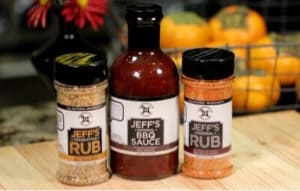jlcnuke
Fire Starter
Are you guys saying you HAVE to use cure if smoking ground beef as jerky?
I have made plenty of jerky with no cure or using an alternative cure (such as soy sauce). If not using a "real" cure or using no cure, the jerky is not safe for consumption (based on my experience) if it isn't consumed in a short time period (up to a week if stored cold has never caused any problems for me).
sent from here using science.






